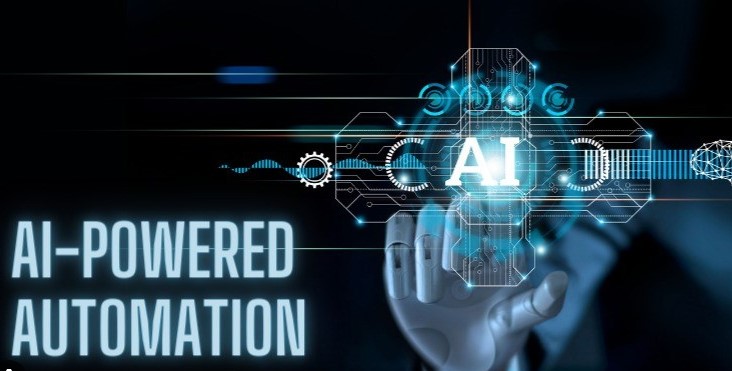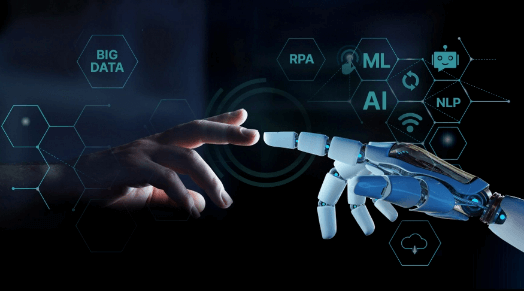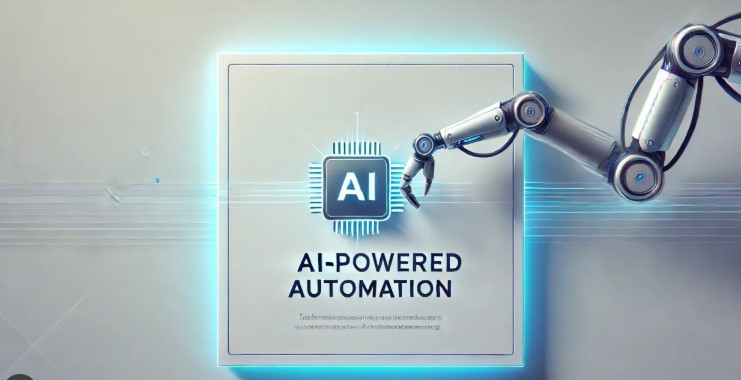Discover how AI-powered automation is reshaping daily life—from smart homes and self-driving cars to personalized shopping and healthcare.
AI-Powered Automation in Everyday Life: What’s Changing?
Remember when AI seemed like a distant future? Fast-forward to 2025, and it’s not only here—it’s woven into the fabric of our everyday lives. From waking up in a smart bedroom to using AI-generated shopping lists, automation is no longer just for tech elites. It’s everywhere. And it’s getting smarter, faster, and more personal.
So, what exactly is AI-powered automation doing in 2025 that’s changing the way we live, work, and even relax? Let’s explore the new normal.
- Smart Homes Are Now Smarter Than Ever
Gone are the days when a smart home simply meant controlling lights with your phone. In 2025, homes are self-learning ecosystems.
Key features in today’s smart homes:
Adaptive lighting that adjusts to your mood and circadian rhythm.
AI-managed energy usage that reduces your bills automatically.
Voice-first interfaces that understand context—not just commands.
For example, your AI assistant knows that on cold mornings, you like your coffee strong and your shower warm. So it preps both—without asking.
The real magic? These homes don’t need programming. They learn from your patterns and adjust automatically.
- Self-Driving Vehicles Hit the Streets
After years of testing and setbacks, autonomous vehicles have finally gone mainstream in 2025.
What’s changed:
AI-powered navigation systems now use real-time satellite and city data.
Robotaxis are common in major cities like San Francisco, Dubai, and Shanghai.
Personal cars now come with autonomous parking and highway modes.
You no longer drive your kids to school. Your car does it—and reminds them to take their lunch.
And logistics? Delivery drones and self-driving vans powered by AI are optimizing routes, cutting fuel use, and slashing delivery times.
- Personalized Shopping with AI

Online shopping is getting a hyper-personalized upgrade.
Here’s how AI is helping you shop in 2025:
Your favorite e-commerce app shows dynamic storefronts tailored just for you.
AI chatbots offer style suggestions, not just links.
Smart mirrors in stores suggest outfits based on your past purchases and body measurements.
Bonus: Your fridge scans what’s low and automatically reorders your groceries—choosing the best prices and delivery slots.
Perhaps the most meaningful impact of AI-powered automation is happening in healthcare.
What’s possible in 2025:
AI health coaches analyze your fitness tracker data and send daily wellness tips.
Remote diagnostics powered by machine learning detect anomalies in real-time.
Personalized treatment plans based on DNA and lifestyle data are generated in minutes.
A simple blood test today may trigger an AI system to predict and warn you about health issues months before symptoms appear.
And for elderly care? Robots and AI assistants help with medication, track vital signs, and even offer companionship.
- AI at Work: The New Digital Coworker
Workplaces in 2025 look very different. Thanks to AI, employees are focusing more on strategy, creativity, and empathy—while automation handles the repetitive stuff.
Here’s what’s happening:
AI assistants handle meeting summaries, scheduling, and follow-ups.
Developers use code-generating AIs to build apps faster.
Marketing teams leverage GPT-style content engines to draft blogs, emails, and ads.
It’s not about replacing workers. It’s about freeing them from busywork so they can do what humans do best—think, create, and lead.
- AI in Education: Learning Gets Personal
In 2025, AI has made education more adaptive, inclusive, and engaging.
How it’s changing classrooms and homes:
Students use AI tutors that adjust lesson plans in real-time.
Teachers get predictive analytics on which students need extra help.
Language learning apps use emotion detection to adjust pacing and tone.
Even at home, parents use AI to monitor learning progress and get suggestions on how to help with homework. Every learner now has a tailored educational path.
- AI-Powered Finance and Budgeting
From budgeting apps to stock investments, AI automation has made money management smarter.
In 2025, your money works like this:
AI analyzes your spending and nudges you when you’re off-track.
Robo-advisors build personalized investment portfolios.
AI helps detect fraudulent activity in seconds and locks down accounts proactively.
Even credit scoring is more nuanced now. AI looks beyond just your payment history—it considers behavior, risk patterns, and financial goals.
- Social Media Powered by AI
Social platforms in 2025 are more curated, intelligent, and real-time than ever.
AI helps you filter toxic content and customize your feed.
Brands use AI to generate posts, analyze trends, and auto-respond to DMs.
Influencers create AI-powered avatars that engage while they sleep.
What’s new? Deepfake detection tools powered by AI now flag manipulated content in real time, improving trust and credibility across platforms.
- Entertainment on Autopilot
Want a movie night? Your AI knows your mood and suggests the perfect film.
AI in entertainment now:
Streaming platforms create custom trailers based on your preferences.
Video games use AI to adapt storylines in real-time.
Music apps generate playlists based on heart rate or brainwave scans.
In short: entertainment isn’t just interactive—it’s emotionally responsive.
- The Flip Side: Are There Risks?

Yes, automation brings convenience—but it’s not without challenges:
Privacy concerns: With AI tracking everything, where do we draw the line?
Bias and fairness: AI models still reflect human biases—leading to unfair outcomes.
Job displacement: Some routine jobs are disappearing, requiring retraining and support.
That’s why 2025 is also seeing a rise in AI ethics specialists, digital policy makers, and new regulations aimed at responsible automation.
Final Thoughts: AI in 2025 Is Practical, Powerful, and Personal
AI-powered automation in 2025 isn’t just futuristic—it’s functional. It’s changing how we live, shop, work, learn, and care for one another.
What makes this era different is not just the capability of AI—but how intuitive and accessible it has become.
You no longer need to be a tech wizard to benefit from AI. Whether you’re planning a vacation, tracking your health, or automating your side hustle, AI is your quiet partner in the background—making life smoother and smarter.
Are you using AI in your daily life? Share your favorite tool or automation tip in the comments—or subscribe to our newsletter for more insights into the future of tech. Read More>>>>





